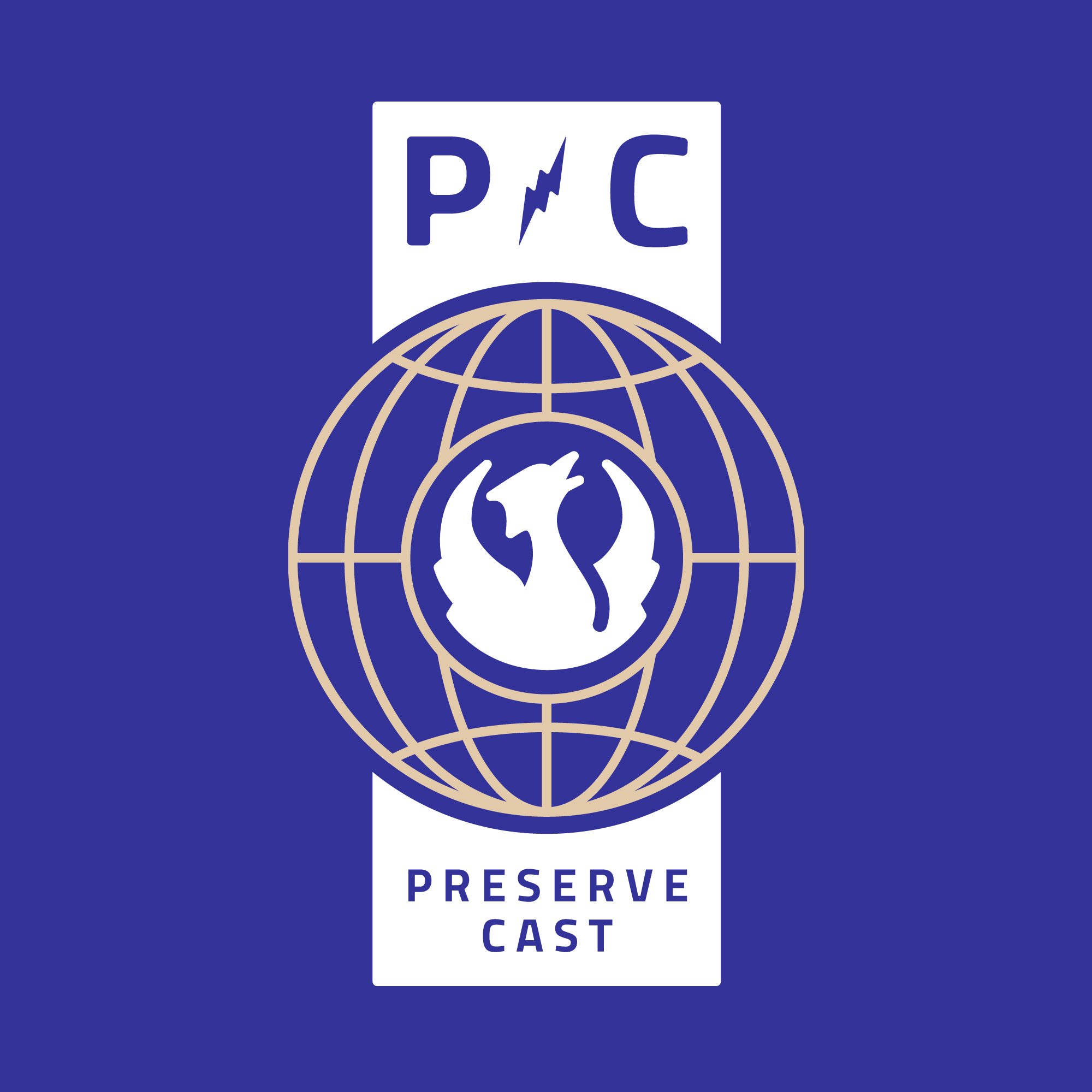
142.9K
Downloads
375
Episodes
PreserveCast is where the past and present meet to discuss how history impacts today – and tomorrow. Hosted by Nicholas Redding of Preservation Maryland.
PreserveCast is where the past and present meet to discuss how history impacts today – and tomorrow. Hosted by Nicholas Redding of Preservation Maryland.
Episodes
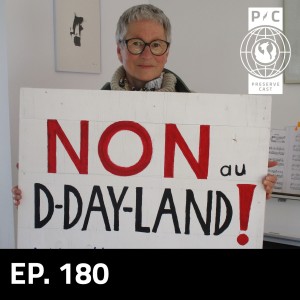
Monday Jun 07, 2021
D-Day Land: a Conflict Between Tourism and Respect
Monday Jun 07, 2021
Monday Jun 07, 2021
With every year that passes, the D-Day landings move further and further from memory to history – and how we protect, remember and honor those bloody beaches becomes a conflict between tourism and respect. Today’s guests are part of a Normandy based preservation organization opposed to the creation of a D-Day land – a cross between heritage and entertainment that has riled up the normally quiet bocage country.
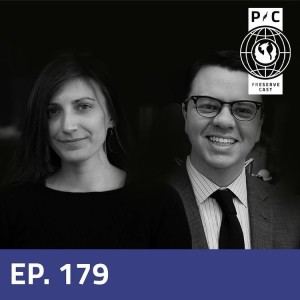
Monday May 24, 2021
PreserveCast Conversations: The Professor and the Practitioner
Monday May 24, 2021
Monday May 24, 2021
On this first edition of PreserveCast Conversations: The Professor and the Practitioner, a new monthly feature of PreserveCast, co-hosts Nicholas Redding and Dr. Whitney Martinko explore the trends, topics and issues that are making headlines in the world of preservation this month. From murals to infrastructure and traditional trades, they’re covering a lot of ground in this conversational take on preservation and the issues that matter. For regular listeners, also, be sure to send any questions you have about this episode or questions you’d like answered in next month’s conversation to info@presmd.org
Learn more about Dr. Martinko at whitneymartinko.com

Monday May 17, 2021
The Origins and True Meaning of Traditional Crafts With BBC‘s Alex Langlands
Monday May 17, 2021
Monday May 17, 2021
To regular listeners of PreserveCast, you know that I’m a huge fan of the BBC “farm” series – which have explored Tudor, Victorian, Edwardian and other eras of British history. Alex Langlands rounds out our interviews with each of the presenters from the series – and Alex also recently published a new book, Craeft: An Inquiry into the Origins and True Meaning of Traditional Crafts, which is a perfect topic of conversation at a moment when the world is almost entirely virtual.
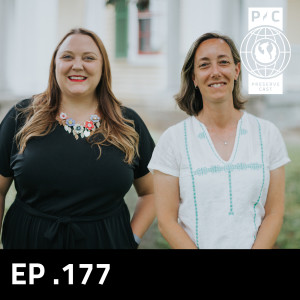
Monday May 10, 2021
Highlighting History and Culture in Nashville with NashvilleSites.org
Monday May 10, 2021
Monday May 10, 2021
Connecting place to story to digital resources is a challenge confronting communities across the globe. That’s why when I learned about nashvillesites.org, I knew we had a winner for PreserveCast. Not only is Nashville an amazing town – but this story holds many lessons for countless other places looking to bring their history to life.
There are over 150 metro markers, over 50 more state and nationally designated and recognized historic markers, sites, buildings, and districts in Metro Nashville. NashvilleSites.org augments Nashville’s unique history with multimedia information and dynamic online resources.
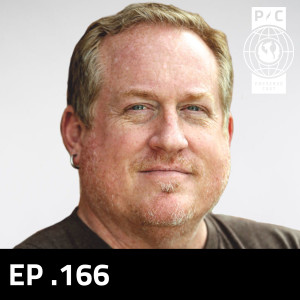
Monday May 03, 2021
Gastroegyptology with Xbox Creator Seamus Blackley
Monday May 03, 2021
Monday May 03, 2021
It’s been roughly a year since the world was plunged into a COVID lockdown – and many of those quarantining turned to baking and cooking as a way to pass the time. For Seamus Blackley, particle physicist, inventor of the Xbox and fermentation expert, he was able to resurrect and recreate Egyptian bread using traditional tools, techniques and yeast dating back 4,000 years. This week, we’re talking about preserving the craft of historic bread baking with a renaissance figure in this unique and fascinating field of yeasty experimentation.
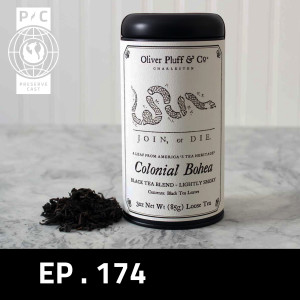
Monday Apr 19, 2021
Serving up a Taste of the Past with Oliver Pluff and Company
Monday Apr 19, 2021
Monday Apr 19, 2021
In this week’s PreserveCast, we’re spilling the tea on the history of this favorite drink and how one company is resurrecting historic blends for modern palates.
We can experience history in many ways – oftentimes that experience happens at a site or by reading an account – but all too often we overlook the powerful experience of tasting history. For today’s guest, serving up a taste of the past is all in a day’s work as the owner of Oliver Pluff and Company, which is dedicated to producing early American tea, coffee, and spice blends for historical and gourmet markets.
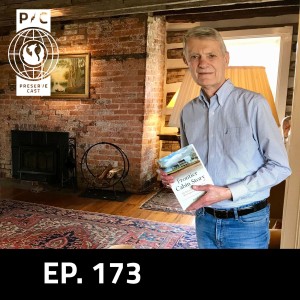
Monday Apr 12, 2021
The Frontier Cabin Story with Joe Goss
Monday Apr 12, 2021
Monday Apr 12, 2021
If these walls could talk is an old refrain used by lovers of historic places and buildings, and thanks to the in-depth research and loving care of today’s guest, a historic log cabin in West Virginia’s historic panhandle is talking again.
Joe Goss is a somewhat unlikely preservationist – an engineer with decades of experience in large-scale infrastructure projects – but the purchase of a historic, circa 1780 log home in Shepherdstown, West Virginia tested his skills and critical thinking to the utmost. On this week’s PreserveCast we’re talking preservation, research and logs with a passionate advocate for one home’s story.
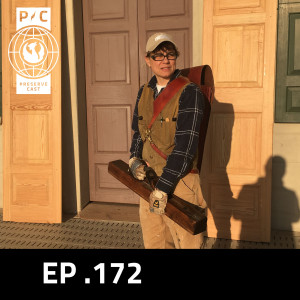
Monday Apr 05, 2021
Repairing, Restoring, and Preserving with Master Craftsperson Amy McAuley
Monday Apr 05, 2021
Monday Apr 05, 2021
Talented tradespeople make preservation physically possible. Today’s guest is Amy McAuley, the preservation joiner at George Washington’s Mount Vernon, where she uses hand powered tools to repair, restore and preserve one of America’s most historic homes. As we celebrate Women’s History Month, we’re talking with a talented female tradesperson who is doing her part to keep the traditional trades alive.
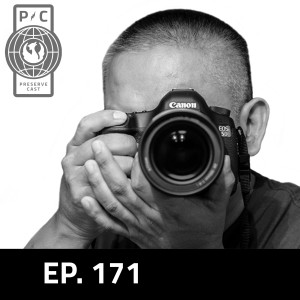
Monday Mar 29, 2021
Art Heals: The Jingle Dress Project with Eugene Tapahe
Monday Mar 29, 2021
Monday Mar 29, 2021
The Jingle Dress project originated from a dream to unite the beauty of the land and the healing power of the jingle dance during these uncertain times due to the COVID-19 pandemic. The origin of the jingle dance to the Ojibwe people happened during the influenza pandemic of 1918-19. It came as a dream to a father whose daughter was sick with the virus. His dream revealed the new dress and dance that had the power to heal. When the dresses were made, they were given to four women to perform the dance. When the little girl heard the sound of the jingles, she became stronger. By the end of the night she was dancing too.
Today’s guest, Eugene Tapahe, also has a dream to take this healing power to the land, to travel and capture a series of images that will document spiritual places where ancestors once walked. The goal is to unite and give hope to the world through art, dance and culture to help us all to heal together. Learn more about the project and support it at: https://tapahe.com/jingle-dress-project.html
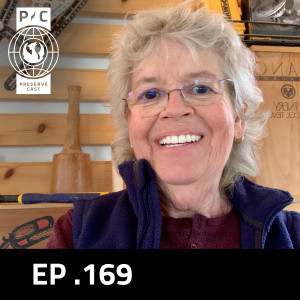
Monday Mar 15, 2021
Shattering the Glass Ceiling of Trades Training with Lisa Sasser
Monday Mar 15, 2021
Monday Mar 15, 2021
Without trained hands able to restore buildings – we can’t “do” preservation. It’s just that simple. Today’s guest is a true trailblazer in the preservation trades; an accomplished historic architect, accomplished tradesperson and notably, the first woman to complete the National Park Service preservation trades training program. On this week’s PreserveCast, we’re talking with Lisa Sasser about women in the trades and the future of trades training in America.

Monday Mar 08, 2021
"Why Keep That?": Collecting Things of Lasting Significance
Monday Mar 08, 2021
Monday Mar 08, 2021
Collecting, cataloguing, conserving. The heart of a museum is its collection, but how do Museums make decisions and who gets to answer the question, “Why Keep That?” The innovative staff at the National World War I Museum and Memorial have taken that question and built an entire exhibit around it. On this week’s PreserveCast, we’re talking with Stacie Peterson, Collections Registrar, National World War I Museum and Memorial, about the challenge of collecting, interpreting and exhibiting.
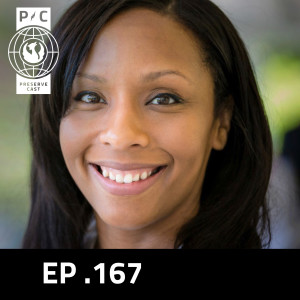
Monday Mar 01, 2021
Monday Mar 01, 2021
Established in 1969, the Maryland Commission on African American History and Culture is the nation’s first-ever ethnic commission and has a 50 year track record of exploring, researching, commemorating and preserving important places associated with the African American history of the Old Line State. On this week’s PreserveCast, we’re talking with Chanel Compton, the Executive Director of the Commission, about their work and the exciting future of African American preservation in Maryland and beyond.
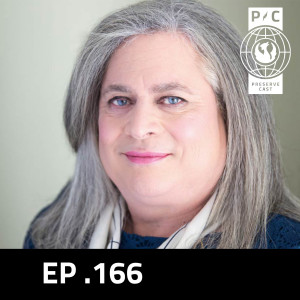
Monday Feb 22, 2021
Building a Legacy of Service: A Conversation with Colonel Jennifer Pritzker
Monday Feb 22, 2021
Monday Feb 22, 2021
Historian, businesswoman, investor, developer, and philanthropist. Colonel Jennifer Pritzker has led an amazing life. A retired Lieutenant Colonel of the U.S. Army, for nearly three decades Col. Pritzker served in the U.S. Army, U.S. Army Reserve, and the Illinois Army National Guard. Today, her legacy of service continues in her philanthropic investments across the nation in heritage, veterans’ issues and beyond. On Today’s PreserveCast we’re talking with a legend of preservation philanthropy. Learn more at: tawanifoundation.org
![[PRESIDENT'S DAY RERELEASE] Building Information Modeling at Mount Vernon with Tom Reinhart](https://pbcdn1.podbean.com/imglogo/ep-logo/pbblog1486907/mt-vernon-bim-pc-1_300x300.jpg)
Monday Feb 15, 2021
Monday Feb 15, 2021
What do you get when you cross information from George Washington’s own handwritten letters, records from the Mount Vernon Ladies' Association, and the latest tech in data systems and digital modeling?
Tom Reinhart is here to explain how George Washington’s Mount Vernon is using and expanding Building Information Modeling (BIM) technology to piece together one of the most detailed architectural models ever.
Happy President's Day from PreserveCast!
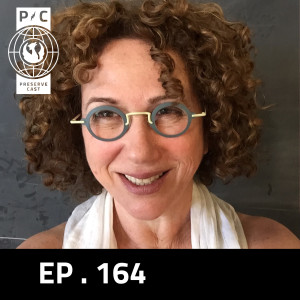
Monday Feb 08, 2021
Small Change: The New World of Crowdfunded Real Estate Investments
Monday Feb 08, 2021
Monday Feb 08, 2021
What if individuals could band together to make change that they couldn’t possibly accomplish alone? That’s the concept behind Small Change, a real estate crowdfunding investment platform founded by today’s guest, Eve Picker. We’ll dive into the new world of crowdfunded real estate investments and how that could shape the future of preservation on this week’s PreserveCast.
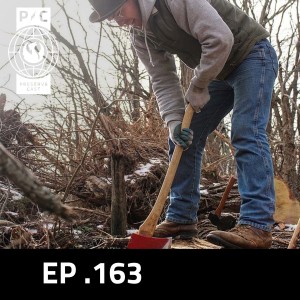
Monday Feb 01, 2021
Monday Feb 01, 2021
For lovers of early American architecture, folkways, crafts and tools, there are few who compare to Eric Sloane. Sloane was a prolific chronicler of the American past – and had a reverence for the way we were that was at moments charming, beautiful and absurd all at once. Today, the legacy of this collector and accomplished artist is being cared for and reinterpreted by the State of Connecticut.
Originally from West Virginia, where he received his B.A. in Social Studies Education from Shepherd University, Andrew comes to the Eric Sloane Museum with experience working at public history sites like Harper’s Ferry National Historical Park, South Mountain State Battlefield for the Maryland Park Service, and Henricus Historical Park managing their 17th century Virginia tobacco farm. In his spare time, Andrew is an avid agriculturalist and supporter of historical trades and may be found climbing the lines, working aboard tall ships. He and his wife are thrilled to be living in New England in a small timber-framed farmhouse with their two pups and cat. Andrew is honored to be a steward of one of Connecticut’s valuable cultural resources.
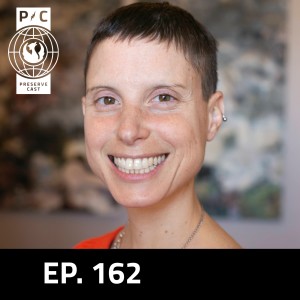
Monday Jan 25, 2021
Monday Jan 25, 2021
As nearly anyone who has seriously studied American history can attest – there is no American story without the story of slavery. It is central to our origin and must be included in order to get a full and complete picture of our history. Unfortunately, the records of slavery are spread far and wide and are often siloed and incomplete. In this two part series, we’re talking to two of the minds behind Enslaved: Peoples of the Historic Slave Trade – a digital preservation effort aimed at connected the dots and knocking down the silos of slave history. Learn more at www.enslaved.org.
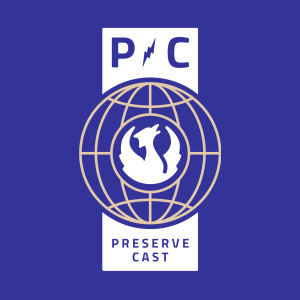
Monday Jan 18, 2021
Monday Jan 18, 2021
As nearly anyone who has seriously studied American history can attest – there is no American story without the story of slavery. It is central to our origin and must be included in order to get a full and complete picture of our history.
Unfortunately, the records of slavery are spread far and wide and are often siloed and incomplete.
In this two-part series, we’re talking to two of the minds behind Enslaved: Peoples of the Historic Slave Trade – a digital preservation effort aimed at connected the dots and knocking down the silos of slave history.
Learn more at www.enslaved.org.
Daryle Williams (PhD, History, Stanford University, 1995), Associate Professor of History and Associate Dean for Faculty Affairs in the College of Arts and Humanities at the University of Maryland, is Co-Principal Investigator on AADHum and Enslaved, two collaborative projects in black studies and digital humanities sponsored by the Andrew W. Mellon Foundation.
Williams was lead editor on The Rio de Janeiro Reader: Politics, History, Culture (Duke University Press, 2015) and serves as Area Editor (Brazil pre-1888) on the Dictionary of Caribbean and Afro-Latin American Biography(Oxford University Press). Single-author publications include Culture Wars in Brazil: The First Vargas Regime, 1930-1945 (Duke, 2001), winner of the American Historical Association's John Edwin Fagg prize, and several articles and book chapters on nineteenth- and twentieth-century Brazilian cultural and social history. His current book project is "The Broken Paths of Freedom: Liberated Africans in Nineteenth-Century Brazilian Slave Society."
Williams has held grants and fellowships from the National Endowment for the Humanities, the Fulbright Scholar Program, the Ford Foundation, the Rockefeller Humanities Fellowship Program, and the Maryland Institute for Technology in the Humanities.
Prior to serving as an associate dean, Williams was graduate studies director in the UMD history department and associate director of the David C. Driskell Center for the Study of the African Diaspora.
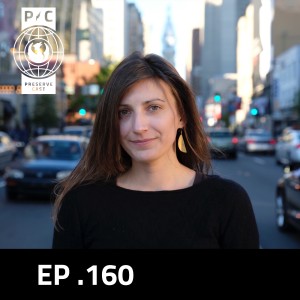
Monday Jan 11, 2021
Market Morality and the Politics of Preservation with Whitney Martinko
Monday Jan 11, 2021
Monday Jan 11, 2021
What we preserve tells as much about us as it does about the history itself. Preservation is a movement with a history unto itself – but all too often that story is overlooked in favor of the history of the sites that are preserved. Whitney Martinko, an associate professor of History at Villanova University, is tackling that story and recently published Historic Real Estate: Market Morality and the Politics of Preservation in the Early United States, an in-depth look at why and what we preserve and how interconnected our preservation landscape is to our market driven economy. On this week’s PreserveCast we’re talking about the impulse to preserve and what it says about us, the preservers.
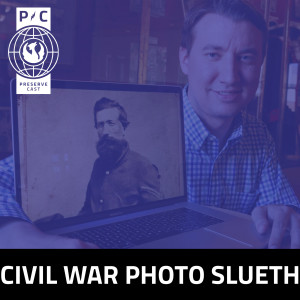
Monday Jan 04, 2021
The Civil War Photo Sleuth: A Conversation with Kurt Luther
Monday Jan 04, 2021
Monday Jan 04, 2021
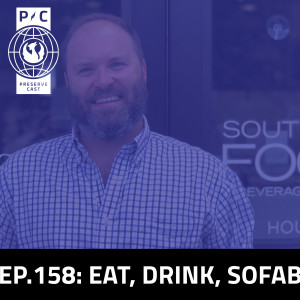
Monday Dec 28, 2020
Monday Dec 28, 2020
Food is powerful. It has the ability to transcend artificial divisions and to unite – and it can speak to our history and heritage if we’re willing to listen, or think with our tastebuds.
For today’s guest, using food to tell a story is all a part of his daily work. Brent Rosen is the President and CEO of NatFAB, the Southern Food and Beverage Museum, and the Museum of the American Cocktail in New Orleans, Louisiana.
So, pack your back, but don’t bring any food – we’ve got that covered on this week’s PreserveCast.
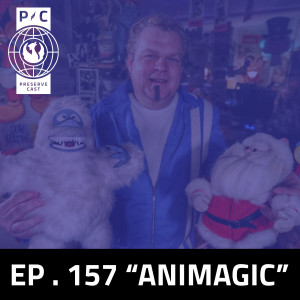
Monday Dec 21, 2020
Monday Dec 21, 2020
You know Dasher and Dancer and Prancer and Vixen, but do you recall Rankin/Bass – the company behind some of America’s most beloved stop-action holiday films? Today’s guest, Rick Goldschmidt does. He’s a historian of Rankin/Bass Productions – the creative team that created Rudolph the Red-Nosed Reindeer, The Year without a Christmas, and dozens upon dozens more. Preserving the legacy of those films and the actual props has been a lifelong passion for Rick and on this week’s PreserveCast we’ll head back to the 1960s to talk TV preservation and memory with an authority on the subject.
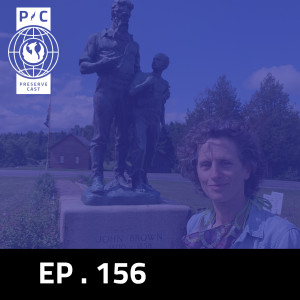
Monday Dec 14, 2020
John Brown's Legacy Lives On in Upstate New York with Martha Swan
Monday Dec 14, 2020
Monday Dec 14, 2020
John Brown.
Few names in American history inspire as much controversy, admiration, and consternation. He was a controversial figure in his own time and remains so today. No matter your opinion, Brown’s legacy is critically important and must be explored and remembered.
Today’s guest, Martha Swan, is the founder and Executive Director of John Brown Lives!, an organization dedicated to preserving Brown’s farm in upstate New York and using his legacy to inspire future generations.
On this week’s PreserveCast, we’re talking about John Brown, memory and how to use the past to engage the present.
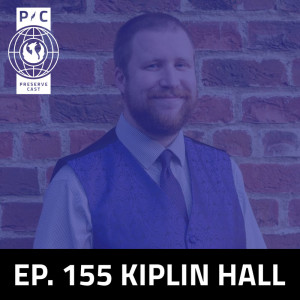
Monday Dec 07, 2020
Monday Dec 07, 2020
When most Marylanders – or most Americans for that matter – think about the first European settlers they generally begin that story on the shores of North America.
However, in reality, these early colonists had long lives in their native countries before they ever set foot in America. Today’s guest, James Etherington, is the Director of Kiplin Hall – a historic site in England that interprets the ancestral home of the Calverts, one of Maryland’s earliest and most prominent colonial families.
On this week’s PreserveCast, we’re heading across the pond to tell the rest of the story of American colonization.
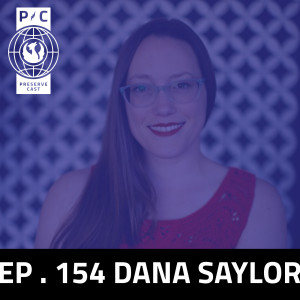
Monday Nov 30, 2020
Monday Nov 30, 2020
Change can be difficult. Building momentum, engaging diverse audiences, and bringing history to life is the tough stuff of preservation and community engagement.
Today’s guest, Dana Saylor, has made it her mission to help fellow preservationists, artists, community leaders, and interested citizens in developing strategies that turn ideas into action. Dana is a creative community connector and mentor to fellow changemakers. Her work is about building emotional connection to place. She is based in Buffalo, New York, and is an Advisor to the National Trust for Historic Preservation. On this week’s PreserveCast, we’re talking the nuts and bolts of making change happen with a leading voice for this critical and timely work.
Hey, Nick here, and before we get started – just a quick reminder to please consider making a donation – even $5 would go a long way – and you can do it at preservecast.org; also would you be willing to give us a five-star rating and maybe a quick review. We haven’t had a new review in way too long and I need your help! And, finally, today’s episode is made possible thanks to the support of The 1772 Foundation. Now, let’s make some change happen!
